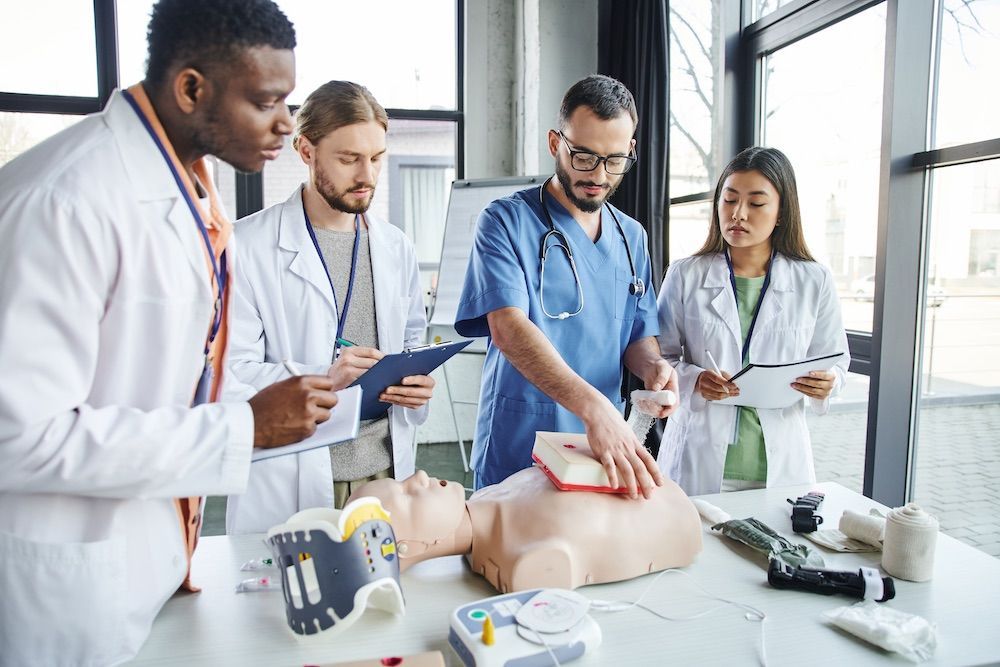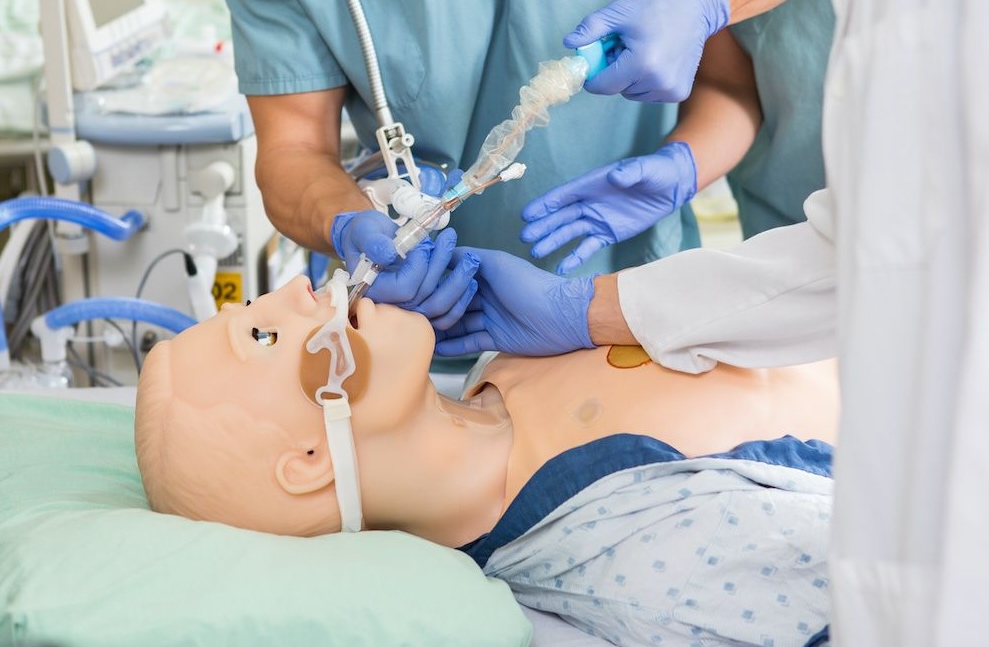To start out as a new healthcare simulation educator may potentially be a time when one is overwhelmed. Despite the process of a steep learning curve in the first clinical simulation educator job opportunity, this can be a life-altering experience to start in a healthcare simulation educator role. The HealthySimulation.com article by Erin Carn-Bennett will explore strategies of how to lay a foundation for new clinical simulation educators’ success in their new roles with tangible and simple tips.
The new healthcare simulation educator should understand that clinical simulation is mostly about human-to-human connection as one of the first lessons to learn in this career pathway. A large portion of clinical simulation relates to emotional intelligence and communication skills. This skill set is valuable since a majority of clinical simulation staff are incredibly empathetic people who truly want the best for their participants, and to educate these learners with high-quality clinical simulations that utilize the Healthcare Simulation Standards of Best Practice.
A new healthcare simulation educator should explore basic communication skills, such as how to truly be an effective listener, and what the difference is between sympathy and empathy. Clinical simulation is a powerful space to employ these skills compared to most other education modalities. Most people truly just want to be heard and understood in a non-judgemental environment. Healthcare simulation is an incredible career in which emotional intelligence and communication skills are utilized to guide clinical simulation participants through an array of emotions that can be transferred into clinical practice.
A lot of clinical simulation educators suffer from imposter phenomenon and worry about whether they perform well in this arena. These emotions are part of a career in a highly human connection focused industry. Due to the fact that clinical simulation teams foster psychologically safe environments, they are able to be vulnerable and share struggles while new in the role. Other simulation team members are highly skilled to support new team member to move through the emotions often present for newer staff members to do the same.
New clinical simulation staff members should not put too much pressure on themselves as they learn to work in clinical simulation. The healthcare simulation environment is a continuous process to learn and unlearn many topics of human and team behaviors. Clinical simulation educator roles can push staff to explore all kinds of tangents of self-development. Self-compassion and other wellness practices can be of assistance in challenging times of growth in clinical simulation education-based roles, particularly in the first few weeks.
To have a mentor, coach, or professional supervisor in either a professional or unofficial manner is extremely helpful at the start of a clinical simulation career. Dedicated time to pause and reflect on progression and experiences with a senior staff member or mentor can be incredibly powerful. Focused conversations can also include time to make goals and plan for the next steps for experiences and education to advance the staff member’s career.
View the HealthySimulation.com LEARN CE/CME Platform Webinar Nursing Simulation for Instructors to learn more!
A new clinical simulation educator should observe clinical simulation as much as possible, particularly in the first few months. Observe with purpose and write down any questions from the clinical simulation and ask faculty afterward. The ability to be curious in all experiences of life and open-minded is a skill that is often expanded as a clinical simulation educator.
At first, as a new healthcare simulation educator, it pays to go into any clinical simulation session with a plan. When part of a clinical simulation scenario goes wrong, there is often not a well laid out plan from the start. A good habit to get into is to always look ahead to what is next on the calendar for a clinical simulation education program. There is a lot of preparation time required for any clinical simulation education that needs to be taken into account in order to develop a well-designed simulation scenario.
The use of cognitive aids and reminders, such as lanyard cards for acronyms for simulator start-up processes or debrief techniques, can be useful for the new simulation educator beginner. Plan ahead for the new simulationist to gain experience in the roles of debriefer and scenario facilitator to ensure there is a more experienced faculty member to mentor if the new staff member experiences obstacles and to provide feedback for growth opportunities.
Lean on other team members from all different types of disciplines, such as the simulation technician and team personal assistant, to gain valuable insight from different perspectives. These team members can be highly skilled and knowledgeable about processes that can be useful and provide reassurance at the start. All simulation team members can provide helpful feedback to foster growth and development and hone the skills of a new clinical simulation staff member.
Ask other team members for feedback on any debriefs in the post-course feedback meetings. Request faculty to be honest and try not to take any feedback on the way debriefs have occurred personally. The new healthcare simulation faculty should embrace a curiosity mindset for the exploration of strategies to become successful. If the individual does not feel comfortable to request feedback in a group, then ask a trusted mentor who was present to provide feedback in a more private space. Reflect on individual performance and also consider how that performance would be adapted if an issue repeatedly occurs.
Attend as much clinical simulation education as possible. Healthcare simulation education is available as online courses, face-to-face courses, and joining clinical simulation societies are just a few additional examples of ways to expand a new clinical simulation staff member’s knowledge base. Social media, particularly Facebook and Twitter, have numerous wonderful resources in regard to healthcare simulation.
There are a number of healthcare simulation podcasts available which are incredibly educational such as those listed on the HealthySimulation.com healthcare simulation podcasts page. Consider postgraduate or any university study that will complement the clinical simulation education role. As the new simulation educator gains experience, they should learn skills from other simulation healthcare roles to broaden their knowledge.
In this HealthySimulation.com article, strategies were discussed around how to set up the new or novice clinical simulation educator for success. Tangible and useful strategies such as communication skills, mentorship, observation, reflection, feedback, education, and planning are some of the concepts discussed to translate into use in the first few weeks of a new healthcare simulation educator role. Healthcare simulation is an incredible career and the way of the future in transformational education for the healthcare workforce.
Register for the Clinical Simulation 101 CE Course to learn more!








